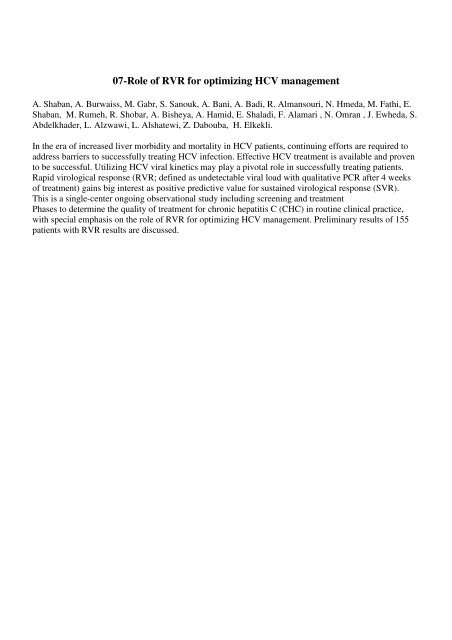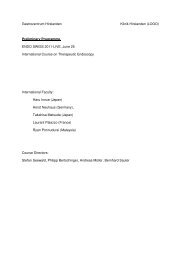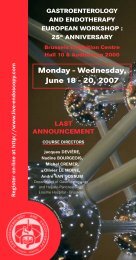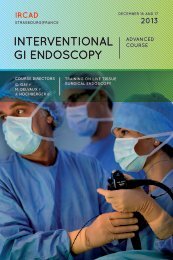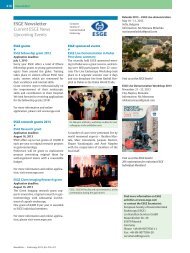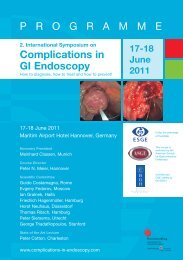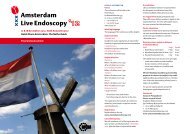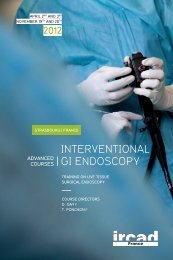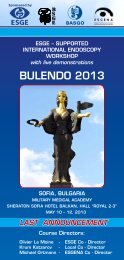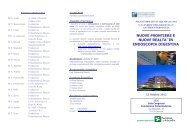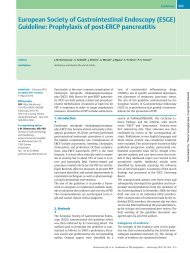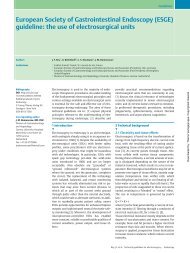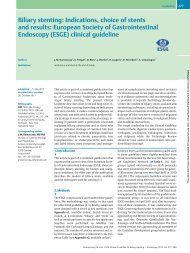04-Abdominal collection caused by fish bone migration A. Shaban 1 , O. Shamam 2 , F. Najar 3 , A. Burwaiss 1 , A. Aboghrara 2 , E. Abosaoud 2 , A. Hamid 1 1- Gastroenterology department, Tripoli medical center. 2- Radiology department, Tripoli medical center. 3- General surgery department, Tripoli medical center. Uningested fish bone swallowing is common, but migration of ingested fish bone is an uncommon complication. Fish bone injuries can cause considerable trauma not only to the upper aero digestive tract but also to any other portion of the gastrointestinal tract. We report the case of a 45 year-old previously fit male who presented to the GIT OPD with non-specific abdominal pain. Ultrasonography and CT had reported the likelihood of a fish bone causing collection. The patient proceeded to undergo laparotomy at which presence of a fish bone surrounded by pus and reactive tissue was then confirmed. 05-Autoimmune liver disease A. Shaban, A. Aboutwerat, A. Burwaiss, M. Gabr, S. Sanouk, A. Bani, A. Badi, N. Hmeda, D. Khair, M. Fathi, E. Shaban, M. Rumeh, R. Shobar, A. Bisheya, E. Shaladi, A. Hamid, F. Alamari , N. Omran , J. Ewheda, S. Abdelkhader, L. Alzwawi, L. Alshatewi, Z. Dabouba, H. Elkekli. Autoimmune liver disease encompasses several disorders. Autoimmune hepatitis (AIH) affects mainly women and is characterized histologically by a portal tract mononuclear cell infiltrate disrupting the limiting plate and invading the parenchyma (infiltrate hepatitis) and serologically by the presence of auto antibodies and increased immunoglobulin G (Ig G), in the absence of a known cause. AIH responds to immunosuppressive treatment. It can present insidiously or as an acute hepatitis. The previously accepted requirement of 6-month duration before diagnosis can be made has been abandoned and treatment should be instituted as soon as the disease diagnosed. In this review, we report on 45 Libyan patients: diagnosis, treatment and clinical course. 06-Role of ERCP in the management of bile duct lesions A. Shaban, A. Burwaiss, M. Gabr, A. Bani, S. Sanouk, A. Badi, N. Hmeda, M. Fathi, E. Shaban, M. Rumeh, R. Shobar, A. Bisheya, E. Shaladi, A. Hamid, F. Alamari , N. Omran , J. Ewheda, S. Abdelkhader, L. Alzwawi, L. Alshatewi, Z. Dabouba, H. Elkekli. Endoscopic Retrograde Cholangio-Pancreaticography (ERCP) has become one of the major diagnostic procedures for biliary and pancreatic diseases since it was introduced in 1968. The introduction of sphincterotomy and gallstone extraction at 1973 enabled doctors to perform therapeutic Endoscopic procedures for the treatment of biliary and pancreatic diseases. In our study we report on more than 1900 patients who had underwent RECP in endoscopy department of Tripoli medical over a 84-month period; indication, finding, and possible therapeutic approach are discussed.
07-Role of RVR for optimizing HCV management A. Shaban, A. Burwaiss, M. Gabr, S. Sanouk, A. Bani, A. Badi, R. Almansouri, N. Hmeda, M. Fathi, E. Shaban, M. Rumeh, R. Shobar, A. Bisheya, A. Hamid, E. Shaladi, F. Alamari , N. Omran , J. Ewheda, S. Abdelkhader, L. Alzwawi, L. Alshatewi, Z. Dabouba, H. Elkekli. In the era of increased liver morbidity and mortality in HCV patients, continuing efforts are required to address barriers to successfully treating HCV infection. Effective HCV treatment is available and proven to be successful. Utilizing HCV viral kinetics may play a pivotal role in successfully treating patients. Rapid virological response (RVR; defined as undetectable viral load with qualitative PCR after 4 weeks of treatment) gains big interest as positive predictive value for sustained virological response (SVR). This is a single-center ongoing observational study including screening and treatment Phases to determine the quality of treatment for chronic hepatitis C (CHC) in routine clinical practice, with special emphasis on the role of RVR for optimizing HCV management. Preliminary results of 155 patients with RVR results are discussed.


